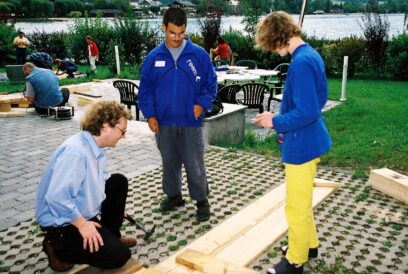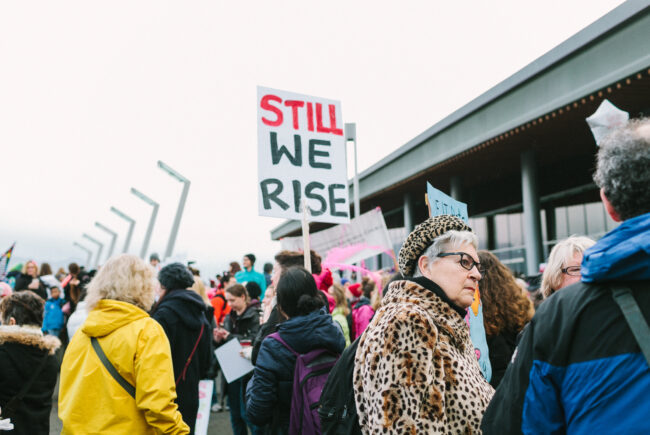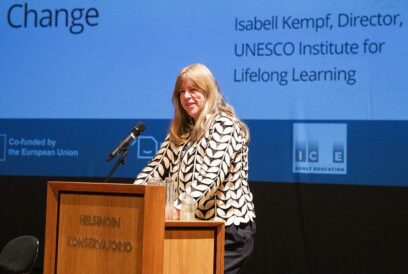

Photo: Alexa Mazzarello, stocksnap.io
Photo: Alexa Mazzarello, stocksnap.io
In a time of general disaffection with institutions and political class, Italians are developing new forms of citizenship to create an authentic relationship with the state and public goods.
Political scandals of misconduct, financial corruption, abuse of public office, and a lack of concrete and effective solutions to the real-life problems of Italians drive a wedge between between political institutions and civil society. This is coupled with low levels of information citizens have of political life.
Populism is rising in Italy too, but it isn’t the only force emerging.
In the last years Italians are experiencing a return to political life: (Demos report, 2016, in Italian) interesting and useful forms of active citizenship are emerging. People are more aware of their power.
Trust in politics has not grown (ISTAT, 2016), but, after a wide public turnout for the last constitutional referendum in December 2016, active participation to politics is increasing. This change is driven above all by social media and its networks, but people are also taking to the streets. Italians’ traditionally wide participation in social and voluntary activities is still stable, playing an important role in citizens’ contribution to their communities.
Cooperative pacts: a new form of citizenship
Cooperative pacts are a new process of active participation in local communities. With pacts, citizens and public authorities communicate at the same level but with different responsibilities and rules. Pacts have different contents and durations, depending on the specific goals. Goals may be, for example, the management or regeneration of public places, monuments, schools, abandoned buildings and so on.
With pacts, citizens (single citizens or groups of independent citizens, associations, firms, etc.), together with municipalities, can establish expected objectives, rules, tools, methodologies, or resources to take care of the commons, whether tangible or intangible, in urban and local communities.
“Commons” are goods, tangible, intangible and digital, that citizens and the administration recognize to be functional to the individual and collective wellbeing.
Two experts, of different generations and backgrounds, share their experiences and perspectives about new forms of citizenship, cooperative pacts and adult education in Italy.

Gregorio Arena (born in 1948) is full professor of administrative law in the School of Economics of Trento University and president of Labsus “the Laboratory for subsidiarity, ” an association and an online review promoting the principle of subsidiarity and active citizenship.

Simone Piazza (born in 1973), PhD in pedagogy, is a teacher, school educator, trainer and coordinator of active community projects, and a “BioTrainer in True Education”.
What is your view on “citizenship” in present-day Italy?
Gregorio Arena: “Thanks to our “Laboratories for subsidiarity” I’ve been going around Italy for more than 10 years, speaking with common people and municipality representatives. I’ve seen with my own eyes the Italians’ real willingness to “take their towns back”. With Labsus we help them to build concrete cooperation pacts with their municipalities to take care of common goods, together with other citizens and public administrations, without becoming a permanent member of any kind of association.
Our laboratories promote the principle of horizontal subsidiarity which is actually part of the Italian constitution! Its article 118, 4th paragraph states that
“The State, regions, metropolitan cities, provinces and municipalities shall promote the autonomous initiatives of citizens, both as individuals and as members of associations, in carrying out activities of general interest, on the basis of the principle of subsidiarity.”
The first step for a pact is the ”Regulation on collaboration between citizens and the Administration for the care and regeneration of urban commons”. More than 110 Italian Municipalities have approved these regulations. This means they have the possibility of building a cooperative pact. That is the legal framework for pacts. Making the actual pacts are the second and essential step of this new governance process. There are the practical instruments to achieve this new process of active participation.”
Simone Piazza: “In my job, I’m always in contact with different groups of people, students, teachers, parents, citizens, and I feel their disappointment because of Italian political vicissitudes. However, there are a lot of new groups and networks that are developing alternative and innovative paths for active citizenship. There is more awareness between citizens, a change of trend. I think that in the Italian society, in the schools, in the universities, a new community model is spreading out: people are understanding the importance of investing in social integration and cooperation to improve quality of life.”
Which are, in your opinion, the connections between active citizenship and adult learning?
Simone Piazza: “Adult learning can help new spontaneous citizens’ groups to acquire new skills. Tools are essential to transform dreams into concrete projects. For example, learning participatory planning is very important to reach shared decisions. My “authentic bio-active-training” includes sessions about interpersonal communication and listening skills to improve people in communication and listening to others – to better understand their own needs. I use also meditation techniques in my training sessions -useful in our times of confusion and disorientation. I have also experimented with Nonviolent communication (NVC) to improve communications skills and to facilitate understanding between citizen groups.
And it is not just about adult education. Citizenship learning should start early. Schools can play a central social and political role as educational communities where children, younger and adults can get together and, with other local organizations, adopting a shared perspective on new participative and democratic citizenship paths.”
Gregorio Arena: “Our laboratories are places of informal education. People involved in cooperation pacts learn from each other; it is a mutual knowledge exchange, in terms of social cohesion, well-being, empowerment and critical thinking.
Citizens who take care of common goods acquire knowledge in civil law, sustainable development, organizational skills, co-planning and various other cross-sectoral competencies.
In a pedagogic sense, the main learning results are the building of relationships and confidence between citizens and local institutions and a sense of shared responsibility. Our laboratories are based therefore on the idea that it is necessary to create a new relationship between citizens and administrations for a deep renewal. Cooperation pacts generate social capital and reignite the citizens´ enthusiasm for and confidence in the public goods. These achievements spread that sense to other people who begin to believe that “another world is possible”.
For example Cortona, a little Toscana Municipality, has arranged autobiographic laboratories in which citizens disseminate and share civic best practices they have experimented with. These labs also act as monitoring devices for pacts’ activities. Finally, in the field of formal education, we’ve promoted the first “Italian school of common goods” in partnership with public organizations. The school is open to citizens, profit and non-profit entrepreneurs and public officials interested in learning how to take care of common goods and to regenerate them in an ecologically sustainable way.
In the end it is all about rebuilding community bonds and to set free Italian citizens’ energies. All these new movements have tangible results for cities.”
As is evident from the two experts’ experiences, new forms of active citizenship are emerging in Italy. Citizens and communities are experimenting with pacts, a new form of shared administration in which participation is not only expected in the decision-making process and in the monitoring stage but also in the implementation of what is decided.
Nevertheless civic cooperation is not to be taken for granted. For concrete social and institutional regeneration in Italy, civic cooperation and pacts need to be supported by all sectors of society.
More on Cooperative pacts on the Labsus site (in Italian).
Interviewee contacts
Gregorio Arena: contatti@labsus.net
Simone Piazza: simone.edu.care@gmail.com





